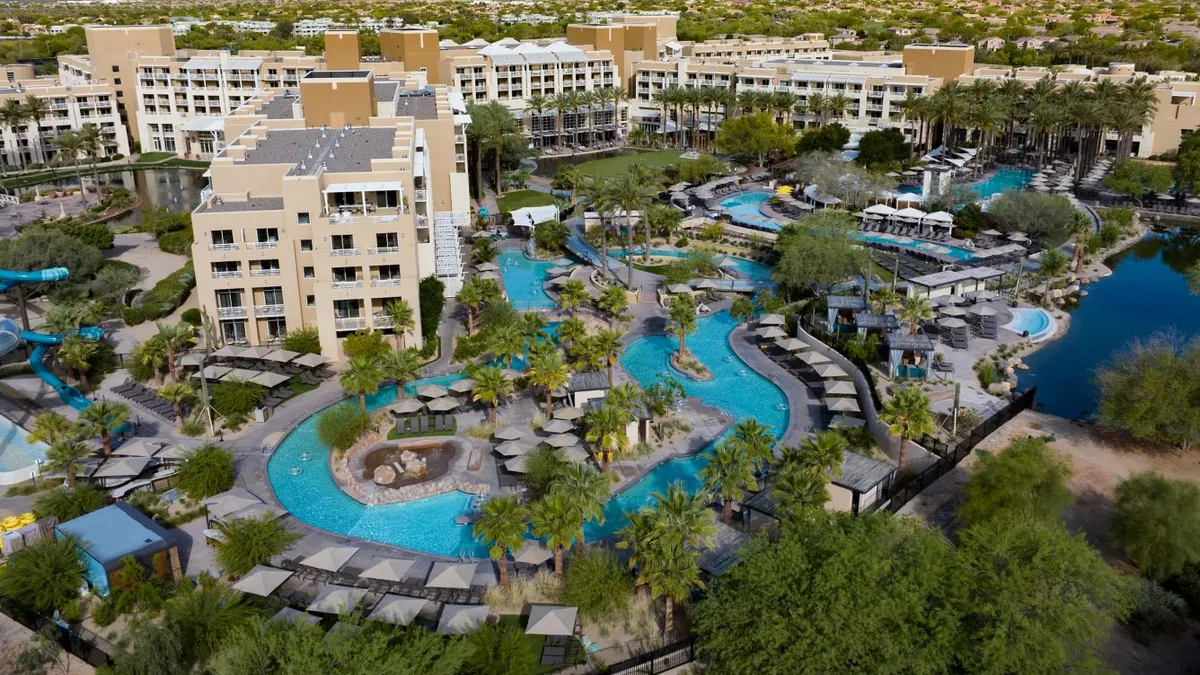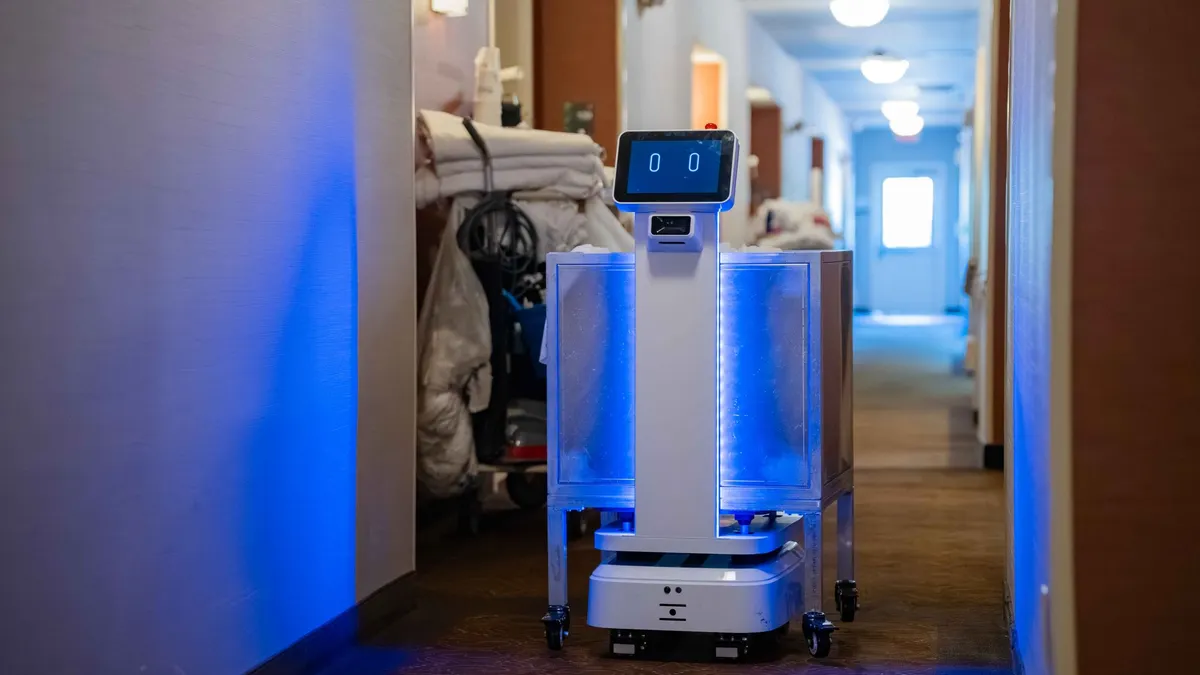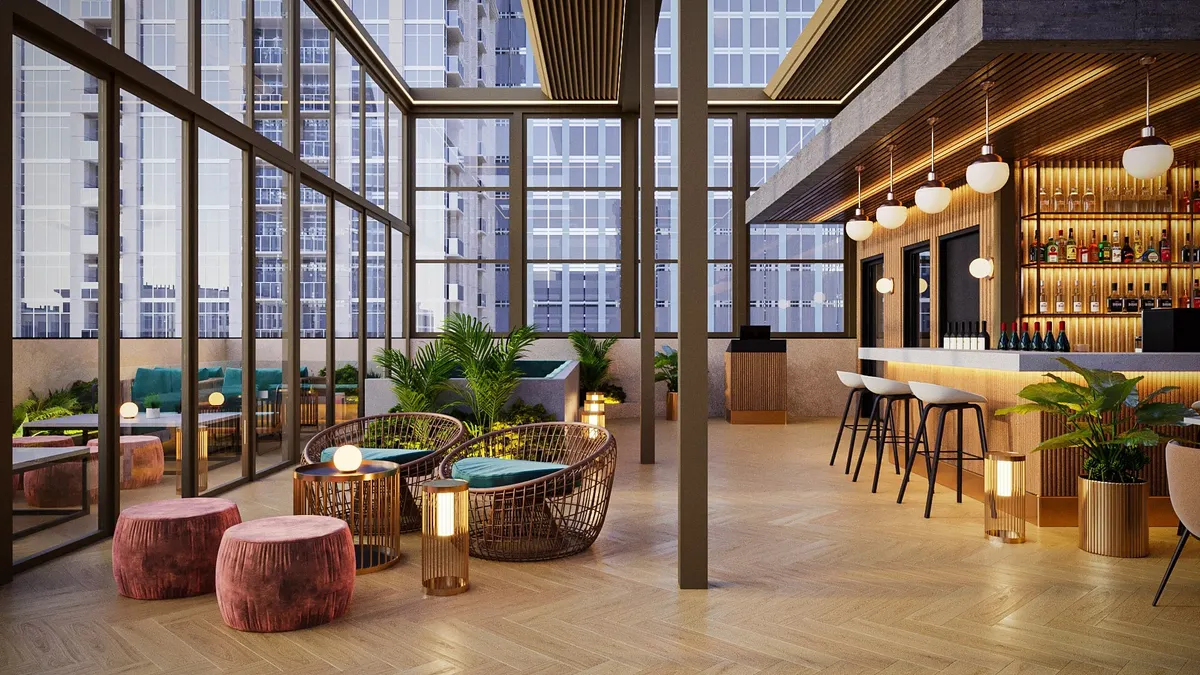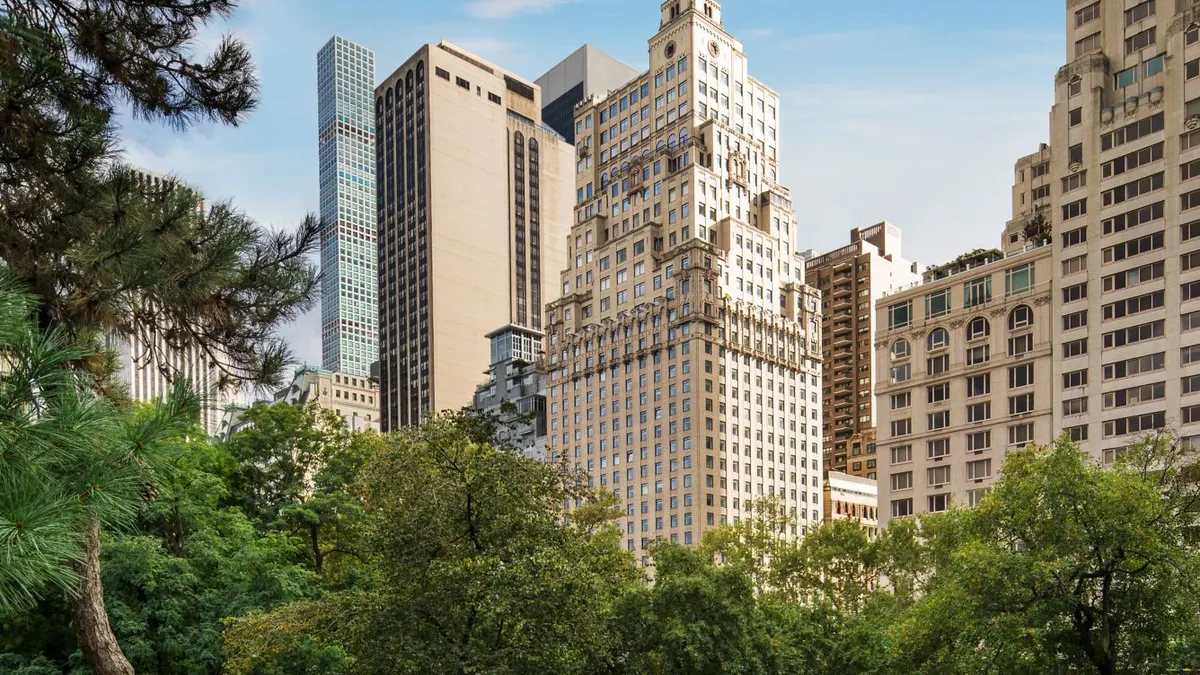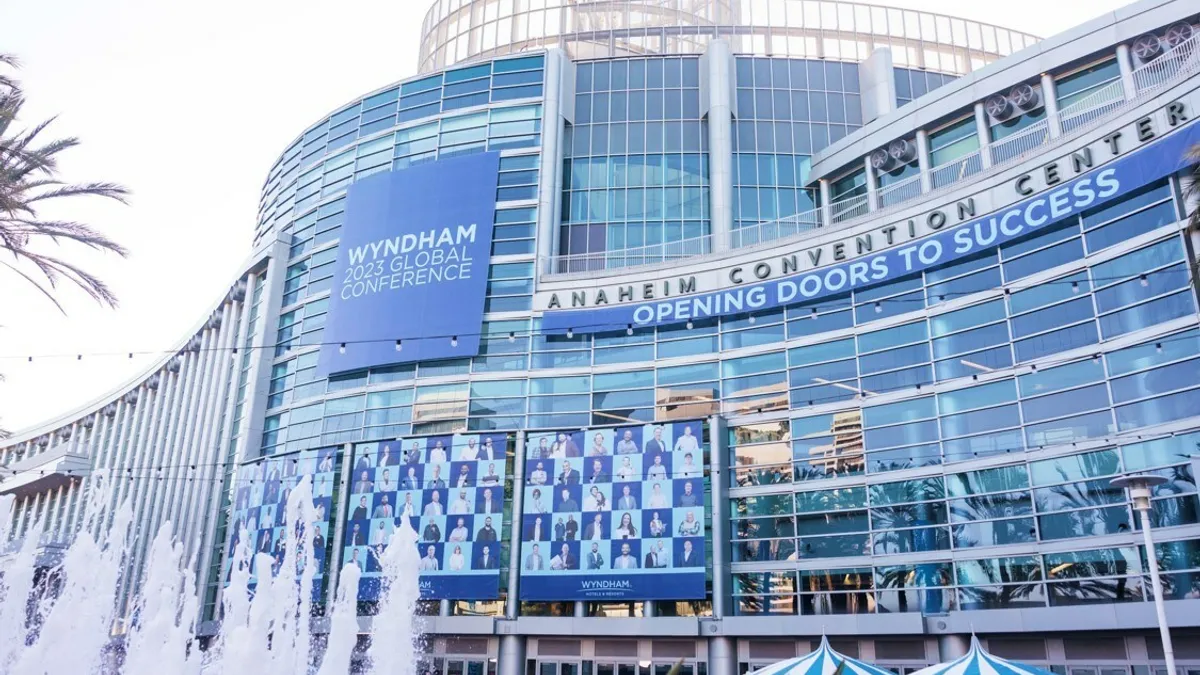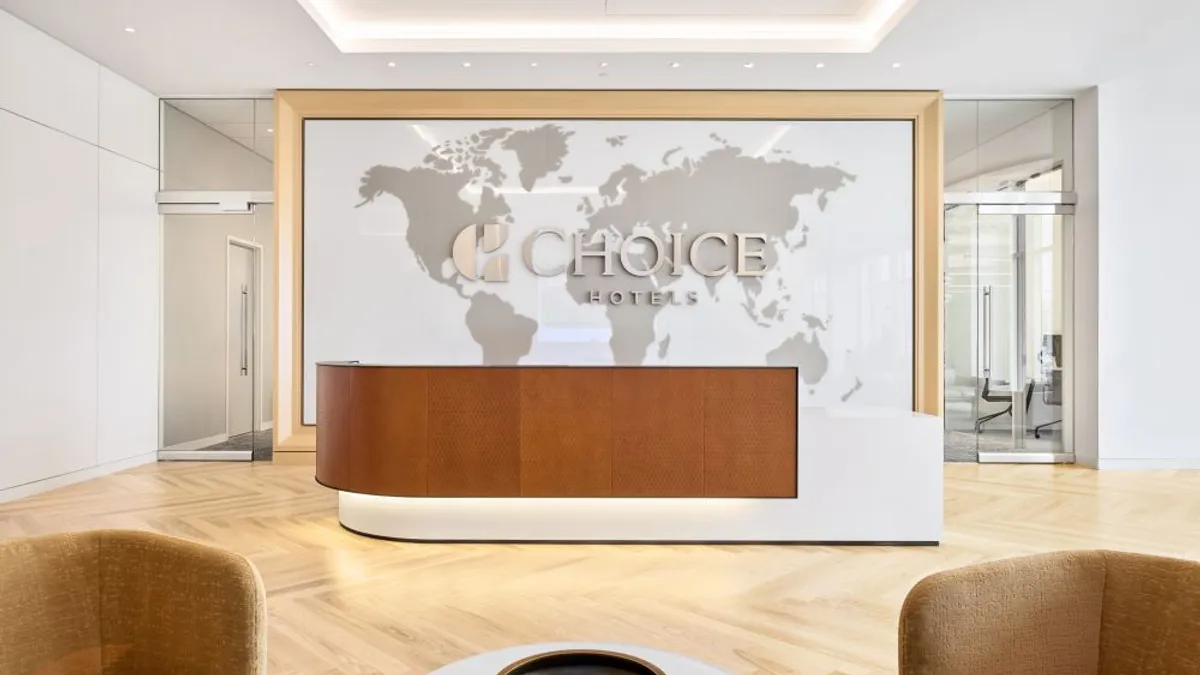In the first half of 2025, U.S. hotel transaction volume grew modestly, though remained significantly below historical averages, according to JLL’s H1 2025 U.S. Hotel Investment Trends report, obtained by Hotel Dive.
Investors struggled to underwrite portfolios and large deals in the first six months of this year, with lingering capital market uncertainty and changing travel demand impacting hotel investment, JLL detailed. However, the luxury hotel segment and urban markets proved to be standout opportunities for investors.
In the report, published Thursday, JLL detailed H1 hotel investment figures and analyzed the top trends that will impact U.S. transactions in the back half of the year.
H1 facts and figures
In the first half of 2025, U.S. hotel transaction volume increased 3.9% year over year to $9.7 billion. The U.S. bucked a global trend, with global hotel transaction volume down 17.5% year over year in H1, according to a separate JLL report on H1 global investment trends, obtained by Hotel Dive.
In the U.S., Phoenix had the largest hotel transaction volume ($1 billion) of any market in the half, up 4% year over year. The Arizona market saw seven trades during H1, including Trinity Investments’ $865 million sale of the JW Marriott Phoenix Desert Ridge Resort & Spa.
New York City ($687 million) and Washington, D.C. ($565 million), followed with the second- and third-largest transaction volumes. New York’s total transaction volume was down 14% in H1 compared to 2024, while Washington, D.C.’s was up 78%. In February, DiamondRock Hospitality sold the Westin Washington, D.C. City Center hotel for $92 million, or roughly $224,400 per key.
The average price per key for a U.S. hotel sale in H1 was $204,000, up 3.5% year over year.
The total number of U.S. hotel transactions (306) declined 6.7% year over year in the half, according to JLL. Globally, the total number of deals was also down, by 16.7% year over year.
Hotel investment hurdles
Despite moderate growth in U.S. hotel transaction volume in the first half of 2025, JLL detailed several challenges to hotel investment.
Slowing RevPAR growth as a result of contracting consumer savings and discretionary spending could negatively impact the transaction market going forward, the firm detailed.
In April, Deloitte reported that President Donald Trump’s shifting tariff policies threatened to stoke economic uncertainty and curb consumer purchasing power. Earlier this month, hotel CEOs reported widespread U.S. RevPAR declines for the second quarter, citing elevated macroeconomic uncertainty.
“Tariffs are impacting investors’ willingness to spend,” Jeanelle Johnson, principal of travel, transportation and hospitality at PwC, told Hotel Dive. “Particularly around the uncertainty, there's a lot of variability, and it's really hard to plan and focus on those no-regrets moves that you can make better [when you’re] immune to the level of volatility around tariffs.”
In June, PwC reported that both U.S. hotel asset sales and brand acquisitions were subdued in the first half of 2025 as a result of volatility in capital markets as well as trade policy shifts.
High interest rates pose another challenge to hotel investment, according to Johnson. However, she said, some industry professionals believe that the Federal Reserve will make two interest rate cuts by year-end, and an additional two or three cuts in 2026.
That being said, broader macroeconomic volatility makes it “hard to predict what the Federal Reserve is going to do,” she said.
JLL also forecast upcoming rate cuts, detailing in the U.S. report that cuts are anticipated for this year and into 2026, and “clarity should help catalyze transaction activity.”
Urban and luxury opportunities
Urban markets remain a big opportunity for hotel investors looking to capitalize on increasing group and business travel, according to the JLL report.
At the start of this year, Global Head of JLL Hotels Research Zach Demuth told Hotel Dive that urban markets would drive investment demand in 2025, particularly as more corporate groups convene in cities.
During Q2 earnings calls, several hotel CEOs noted that group booking pace remained solid for the back end of the year. There's also been an uptick in business transient demand from small- and medium-sized businesses, Johnson noted.
In the second half of 2025, investors will also look to urban markets to capitalize on historic discount-to-replacement costs, according to JLL. As of H1, it was 71% more expensive to develop a full-service urban hotel in the U.S. than to acquire one, as construction costs rose, according to the report.
Investors will also focus on luxury hotel acquisition as high-net-worth wealth grows while the middle class contracts, JLL’s report detailed. U.S. RevPAR deceleration in H1 was most apparent in the lower-tier segments, while luxury performance continued steady growth, per the report.
The luxury hotel segment drove Hyatt Hotels’ Q2 performance results, in particular, as “high-end consumers continue to prioritize travel,” CEO Mark Hoplamazian said during an earnings call.
Other factors that will catalyze hotel investment in the months ahead include loan maturities and property improvement plan requirements, according to JLL.


